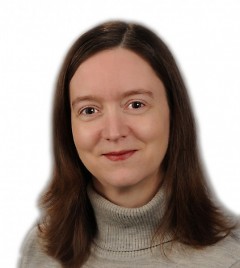“What role can everyday people, especially young people, play in building peace in our world?” Ann-Louise Colgan, Director of public education, United States Institute of Peace (USIP), answers that question in a public talk on Thursday, April 13. Her presentation is the first in the series, Give Peace a Chance, co-sponsored by the Kent District Library and the World Affairs Council of Western Michigan.
Ms. Colgan discusses how despite the depressing headlines we see every day about seemingly unending conflict worldwide, work for peace persists, even in the most difficult circumstances, in places like Iraq and Afghanistan and beyond.
In her work, she is dedicated to increasing the American public’s understanding of international conflicts and nonviolent approaches that can be used to resolve them. Ms. Colgan joined the USIP in 2010 after more than a decade working at organizations focused on international human rights issues, peace and conflict, and U.S. foreign policy. Her background includes research and policy work, as well as extensive experience in communications and public education. From human rights organizations to the U.S. Holocaust Memorial Museum, where she managed the high-level Genocide Prevention Task Force and subsequently served as director of the Museum's Academy for Genocide Prevention, she developed and implemented plans to engage policymakers and to educate a broad public audience on issues of peace and conflict and other global priorities. She holds a master's degree in international studies and a bachelor's degree in European Studies.
Give Peace a Chance consists of three presentations that will take place at the Cascade Township Branch of Kent District Library. The series continues on Wednesday, April 19th, with presentation by Dr. George Lopez, Hesburgh Professor of Peace Studies Emeritus at the Kroc Institute, University of Notre Dame.
In existence since 1949, the World Affairs Council of Western Michigan is dedicated to educating people in western Michigan about other countries and cultures of the world, as well as providing a forum for discussion of critical foreign policy issues. The Council is non-partisan and speakers’ views do not necessarily reflect the Council’s. The Council welcomes the opportunity to be a platform where major global issues can be discussed in an atmosphere of mutual respect.
The Rapidian, a program of the 501(c)3 nonprofit Community Media Center, relies on the community’s support to help cover the cost of training reporters and publishing content.
We need your help.
If each of our readers and content creators who values this community platform help support its creation and maintenance, The Rapidian can continue to educate and facilitate a conversation around issues for years to come.
Please support The Rapidian and make a contribution today.
